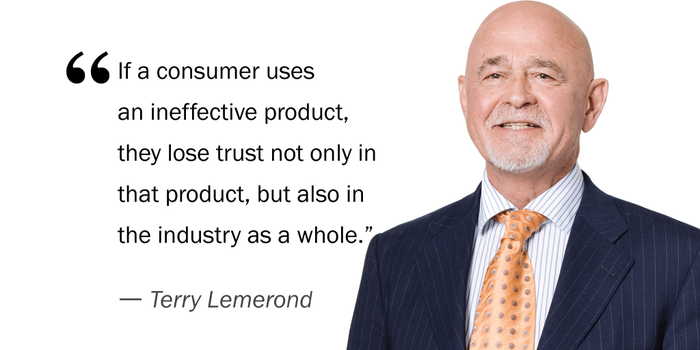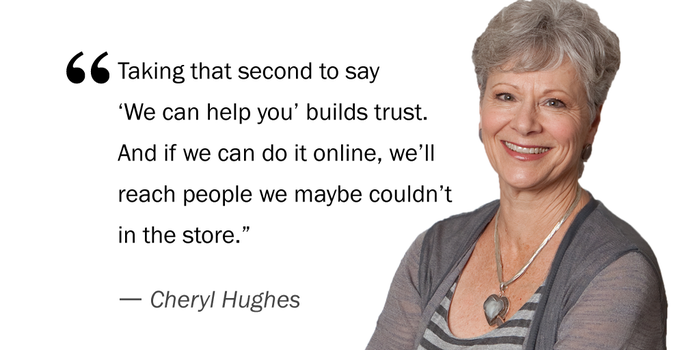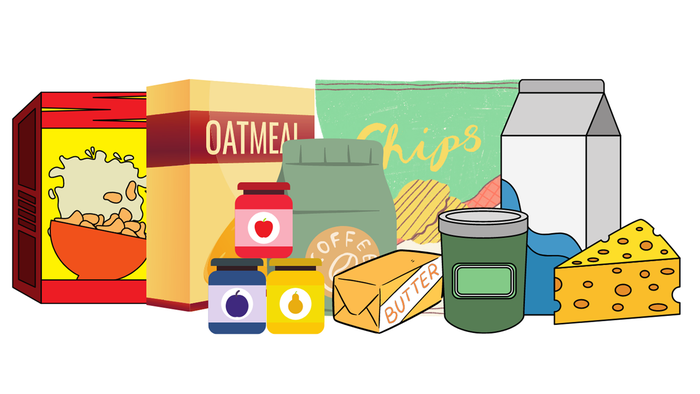
There’s no doubt about it: When it comes to consumer trust, the dietary supplement industry is facing its fair share of challenges. According to a survey by Nutrition Business Journal and New Hope Network, just 39 percent of consumers find supplement manufacturers trustworthy. Only half believe the industry follows strict regulations and, worse, a whopping 59 percent think there could be undisclosed ingredients in their supplements.
While it might be tempting to attribute these findings to a lack of information, Alan Lewis, director of special projects at Natural Grocers by Vitamin Cottage, says the real problem is actually an oversaturation of information. “Medical doctors receive a total of just 19 hours of nutrition training during medical school, so one of consumers’ most important sources for personal health information is simply silent on nutrition—or worse, dismissive of it,” he explains. Lewis believes this knowledge gap, in turn, prompts consumers to reach out to all types of places for guidance on supplements, many of which are not credible. The internet, of course, comes to mind. With so much readily accessible info, it can be tricky for consumers to discern the legit from the questionable, fueling confusion and distrust.
Beyond an overabundance of information, an oversaturation of products and retail outlets is further muddying the waters. “Consumers are accessing more and more products that used to be reserved for the natural channel in club and mass retail where there is no shopping assistance,” says Jeffrey Brent Brams, vice president of product development at Garden of Life. Online shopping poses a similar problem, as human interaction is nonexistent. “This model does not support expertise,” he says. “It supports price, availability and selection.”
Cheryl Hughes, owner of The Whole Wheatery in Lancaster, California, also believes today’s dizzying selection of vendors and products is hindering trust. “Supplements are everywhere and every company has its own brand, which makes consumers wonder what’s actually going into these formulations,” she says.
Terry Lemerond, EuroPharma founder and owner of two Terry Naturally retail locations in Green Bay, Wisconsin, agrees that product proliferation erodes confidence, especially when some bad apples don’t include efficacious doses in their supplements. This undermines the credibility of legitimate products, too. “If a consumer uses an ineffective product,” he says, “they lose trust not only in that product, but also in the industry as a whole.”
But there is a silver lining. When presented with 14 institutions, including the police, the medical system and newspapers, more than 70 percent of survey respondents placed small businesses squarely at the top of the list as the most trustworthy. They also rated the natural and organic food industry highly, with more than half giving it their seal of approval. And consumers are optimistic: 68 percent of respondents think the industry is continuously trying to make products more effective; 66 percent believe the industry is trying to improve quality. Now brands and retailers must live up to their reputation and potential.

Action items: brands
The most effective trust-building tool in supplement companies’ arsenals is their commitment to quality. Most brands stocked by independent natural retailers are already going above and beyond in this area. At Europharma, for example, raw materials and products undergo a minimum of three levels of testing before supplements ever reach the shelf. Its curcumin ingredient has 30 published studies at its back. And if ever a customer still isn’t satisfied, Europharma makes good on its money-back guarantee on all products.
Brams believes this kind of commitment to quality has to be the baseline—a jumping-off point rather than an end point. To engender unwavering trust, manufacturers must take every baseline standard and elevate it.
At Garden of Life, this means upping the purity baseline by investing heavily in third-party certifications such as USDA Organic, Non-GMO Project Verified and B Corp. “This is a really important strategy for this channel,” Brams says, because it establishes trust by offering specialty customers the truly specialty products they want. For instance, not just a protein powder but a USDA Organic protein powder. A side benefit of this is that, as more third-party seals pop up in the independent market, “you start to bridge that consumer crisis we’re experiencing because now they’re educated about third-party testing and auditing,” Brams adds.
Generating trust through transparency is a common call in the supplement industry, and it’s a worthwhile baseline. The Council for Responsible Nutrition intends to debut its Supplement Online Wellness Library this year, which will make transparency simpler for brands by allowing them to register with label information and additional certifications and documentation. “That’s the cornerstone of a good regulatory paradigm—knowing what’s on the market and what’s in each product,” says Duffy MacKay, CRN’s senior vice president of scientific and regulatory affairs. But even MacKay admits this is just the start.
“Transparency does not equate to goodness; it equates to not hiding,” Brams says. “Transparency is the invitation to the party, but it’s not the party.” The party, he argues, is traceability. That’s why quality brands must take transparency to new heights with cutting-edge initiatives.
As Brams points out, truly natural brands can take shoppers on a trip that companies that use artificial ingredients cannot. They can highlight where the seeds were sown, which farmer grew them, which auditor verified them and how the finished product was manufactured in an eco- or socially friendly way. “Traceability is the journey your food takes from seed to plate, and it implies that someone is tracing the product,” Brams says. “That, to me, is what our promise as an industry needs to be.”

Action items: retailers
Many independent natural products retailers already do a lot to foster trust. Knowledgeable staffs, educational seminars, in-store demos, informative shelf-talkers and signage, and community partnerships are cornerstones of this industry and enable retailers to remain solid sources of education for their core base. But in order to gain even more confidence—and attract customers from beyond that core—they need to step up every one of their initiatives. Here’s how.
Do demos right. In-store demos are a mainstay at Massachusetts-based Cambridge Naturals, but second-generation co-owner Emily Kanter upgrades this tactic by asking brands to send executive-level sales reps. “They must be able to answer questions about efficacy testing or where herbs are grown—information that higher level representatives have at their fingertips,” she explains. “It’s a next level of trust we’re trying to communicate. We’re saying we have nothing we want to hide from shoppers and, in fact, it’s to their benefit to seek out this information.”
Amplify store voices online. Conversations between knowledgeable staff members and shoppers are key, but retailers should expand these conversations beyond the aisles. At The Whole Wheatery, Hughes leverages social media to help her shoppers solve their most pressing health problems, which, she says, builds confidence in spades. She tracks trends online to home in on what her shoppers might want most, matches products to those needs and promotes them on social media as solutions. “Taking that second to say ‘We can help you’ builds trust,” Hughes says. “And if we can do it online, we’ll reach people we maybe couldn’t in the store.”
Kanter uses social media to share employee endorsements and create personal connections. “We want staff to get personal about products,” she says. “They may say why they love a supplement or share that they got to visit a facility and were so impressed with it. These are things we communicate in the aisles, but not everyone asks. By using social media, we can get the word out there even if nobody asks.”
At Terry Naturally, Lemerond amplifies the impact of in-store events and lectures by uploading them to YouTube so the entire community can access the information.
Up the educational ante. Hosting a panel or a nutritionist talk is a great idea, but education can be even more impactful when you make it entertaining. Natural Grocers recently partnered with hip-hop artist DJ Cavem to host “culinary concerts” at local schools and in-store. Lewis says the events—part concert, part cooking demonstration—target kids in order to drive purchases.
Certify and beautify. It’s true that quality sets independent natural retailers apart from big-box stores, but if you can communicate that quality without saying a word, you’ll really instill confidence. For example, Cambridge Naturals has become a certified B Corp, which demonstrates that the store goes above and beyond with its commitment to quality and socially and environmentally friendly business practices.
It also helps to let your high-quality products do the talking. “There’s a lot of emphasis on making produce and grocery look beautiful,” Kanter says. “But it’s also a disservice to leave the supplement section scattered and not front-faced because that doesn’t communicate quality. We want to have a beautiful [supplement department] because it communicates that people have invested money and research in order to make these products.”
Save
Save
Save
About the Author
You May Also Like
.png?width=700&auto=webp&quality=80&disable=upscale)


